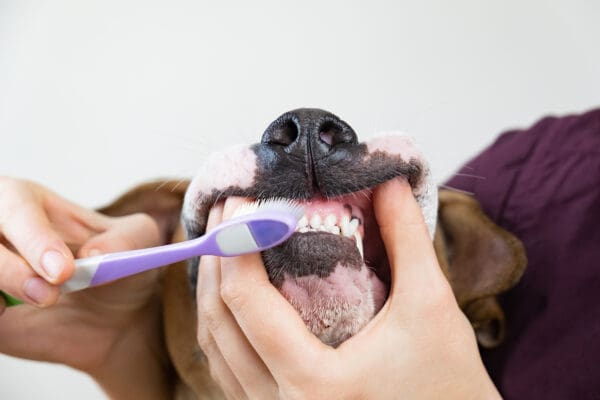
11401 NE 195th St. Bothell, WA 98011
(425) 486-9000 PHONE (425) 486-9002 fax
Encephalitozoonosis, caused by the parasite Encephalitozoon cuniculi, is a disease that affects primarily rabbits and is a common cause of kidney disease and/or central vestibular disease. The most common symptom seen by rabbit owners is the classic “head tilt” or spinning of severely affected rabbits, but other symptoms can also be seen, including dehydration, increased drinking and urination, anorexia, and GI stasis, among others. Unfortunately, all these symptoms can be also be seen in a number of other disease conditions, so these signs are not diagnostic for E. cuniculi infection.
What is Encephalitozoonosis?
- cuniculi is a single-celled protozoal parasite that infects primarily rabbits, but can be spread by dogs and wild animals. It is spread via ingestion or inhalation of parasite spores from an infected animal, usually shed in the urine. There is also evidence that it can be spread through “vertical transmission”, from mother to offspring in utero. The parasite infects the kidneys and brain, and can sit dormant for up to several years before becoming an active infection, or it may become an active disease immediately after infecting the host.
How does it affect my rabbit?
The primary target organs for Encephalitozoonosis are the kidneys, brain, liver, and eyes. If the primary infection is in the kidneys or liver, it may result in failure of these organs. This can lead to excessive drinking/urinating, urinary incontinence, toxin buildup within the body, immune suppression, weight loss, pain, anorexia, and a variety of other symptoms.
If the primary infection is the brain, it may affect the rabbit in many different ways. Some rabbits may have changes in appetite and personality, while others may die suddenly. The most commonly seen presentation is that of a “head tilt”, also known as “central vestibular disease”, ranging from a mild tilt of the head to one side to severe spinning/twisting and an inability to stand, known as “torticollis.” The spinal cord may also be impacted.
- cuniculi infection can also affect the eyes. The most common sequelae is the development of cataracts. Cataracts, in the short term, cause loss of clear vision and eventually, blindness. This may affect one or both eyes, and if only one eye is affected, there is no guarantee that the other eye may or may not be affected in the future. Cataracts may lead to development of Glaucoma, a painful and debilitating eye disease.
How is it diagnosed?
Unfortunately, there is no definitive test that can diagnose Encephalitozoonosis in a live rabbit at this time. However, combined results of several tests can help give us indications that E. cuniculi is the causative agent in a sick rabbit with appropriate signs. These include head x-rays, serum chemistry analysis, a complete blood count, serum pathogen titers, urine analysis, and fecal parasite examinations. Depending on the patient, other testing may also be indicated. As each patient is different, it is important to tailor the diagnostics to match the patient and presentation.
What can be done to treat my rabbit?
Treatment for Encephalitozoonosis depends both on the primary target organ as well as the symptoms observed. There are several medications available that have a good track record in treating Encephalitozoonosis, but none have been found to be ideal in all situations. Your doctor will discuss with you options and plans for medication for your individual rabbit.
Please remember that all medications have side effects. Follow-up visits and testing to ensure that your rabbit is handling treatment appropriately are very important. Because each patient is different, your doctor will plan a specific follow-up routine for your rabbit.
Supportive care: In addition to medications, rabbits with Encephalitozoonosis will require a warm, dry, clean living space, and will often need to be kept on padded bedding. Many rabbits will need to be assisted in their feeding, some will require fluid supplementation, and all will need some degree nursing care until they are able to get around on their own.
Prognosis: Many patients will show immediate improvement with treatment, while others may take weeks to see significant changes and improvements in condition. In some cases, the damage done by the infection will be permanent, and the affected rabbit may have disabilities that need to be managed for the rest of their lives. Please discuss your rabbit’s prognosis with your doctor so that realistic expectations can be made.
March 30, 2015
Content of this Care Sheet Courtesy of:
The Center for Bird and Exotic Animal Medicine
11401 NE 195th St. Bothell, WA 98011
(425) 486-9000 PHONE (425) 486-9002 fax



